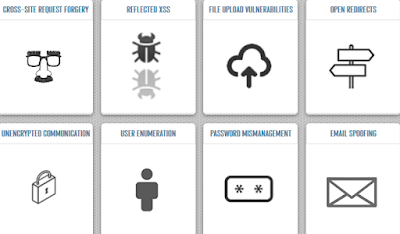Be sure to check out Part I and Part II of our series on free online courses that include opportunities for women and executives to acquire degrees from top universities in the world. In Part III, we cover more learning opportunities from Microsoft and other platforms with tips on visually learning hacking to mitigate against cyberattacks.
Without further ado, here are five valuable learning platforms we use:
- Microsoft documentation pages where you can search helpful information guides on using and troubleshooting microsoft products; learn based on your role, subject matter or techonology expertise; ask questions and get answers and explore code samples from which to build further upon.
In addition, you have access to resources for startups, students and video content from developers and technology enthusiasts with courses in azure, powerapps, powerbi, and all other services. You can earn microsoft certifications in following job roles: developer, administrator, solution architect, data engineer, data scientist, artificial intelligence, devops, security engineer and functional consultant. Available are over 114 results related with certifications that you can choose from to improve your skills. - Hacksplaining is a fantastic platform with cybersecurity training for more than developers, because of the visual way it explains and takes user through different attack scenarios that a cyberattacker goes through to steal your data, and with which knowledge, you can better foil the stages of an attempted attack on your business systems.
Free cybersecurity lessons on hacksplaining include sql injection, cross-site scripting, command execution, clickjacking, cross-site request forgery, reflected xss, file upload vulnerabilities, open redirects, unencrypted communication, user enumeration, password management, email spoofing, malvertising, logging and monitoring, buffer overflows, server-side request forgery, directory traversal, dom-based xss, broken access control, information leakage, privilege escalation, session fixation, weak sessions, xml bombs, xml external entities, denial of service attacks, lax security settings, toxic dependencies, host header poisoning, insecure design, mass assignment, prototype pollution, regex injection, remote code execution and cross-site script inclusion. - At SANS cyberaces, you get to learn the fundamentals of cybersecurity for free, where you get to learn the foundational concepts needed to assess and protect information systems against cyberattacks. The course covers operating systems, networking and system administration and it is self-paced, continually updated and setup in an engaging way to provide learner with solid understanding on which to build a career in cybersecurity.
- At FutureLearn, you have 8 weeks free access to Introduction to cybersecurity course developed by The Open University of UK, after which you will be required to pay for further access. The course, with 321,559 students enrolled, covers weekly material related with the threat landscape, authentication, malware, networking and communication, cryptography, network security, when your defences fail and managing security risks.
The course is supported by the UK governments national cybersecurity programme and accredited by the Institute of Information Security Professionals (IISP), which as a student gives credits that contribute towards your higher education studies. - Cyber Security for Beginners, where you signup via email and get a free cyber security lesson delivered to your inbox every 2 days for five weeks joining other 23349 enrolled students. Among reasons why cbyer security is important is that ransomware attacks grew 4,000 percent in 2014, a computer application has on average 14 vulnerabilities and 71 percent of victims did not discover a cyberattack themselves.
The beginner-friendly course designed for anyone eager to stay safe online, guides the student through cybersecurity basics, right tools and tactics, detection and prevention, protecting self and loved ones, safe to explore the web, real and useful cybersecurity skills.
In conclusion, increasing your knowledge to better defend your data and business from cyber criminals contributes to making the web a safer environment for yourself and loved ones. Therefore with plenty of opportunities to upgrade your skills makes it even more difficult for cyber criminals to suceed, and hopefully the more skills you gain, the more you will pass on to others within your community to further protect against increasing cyberattacks.
Leave us a comment and share within your networks.
Read more:






Comments
Post a Comment